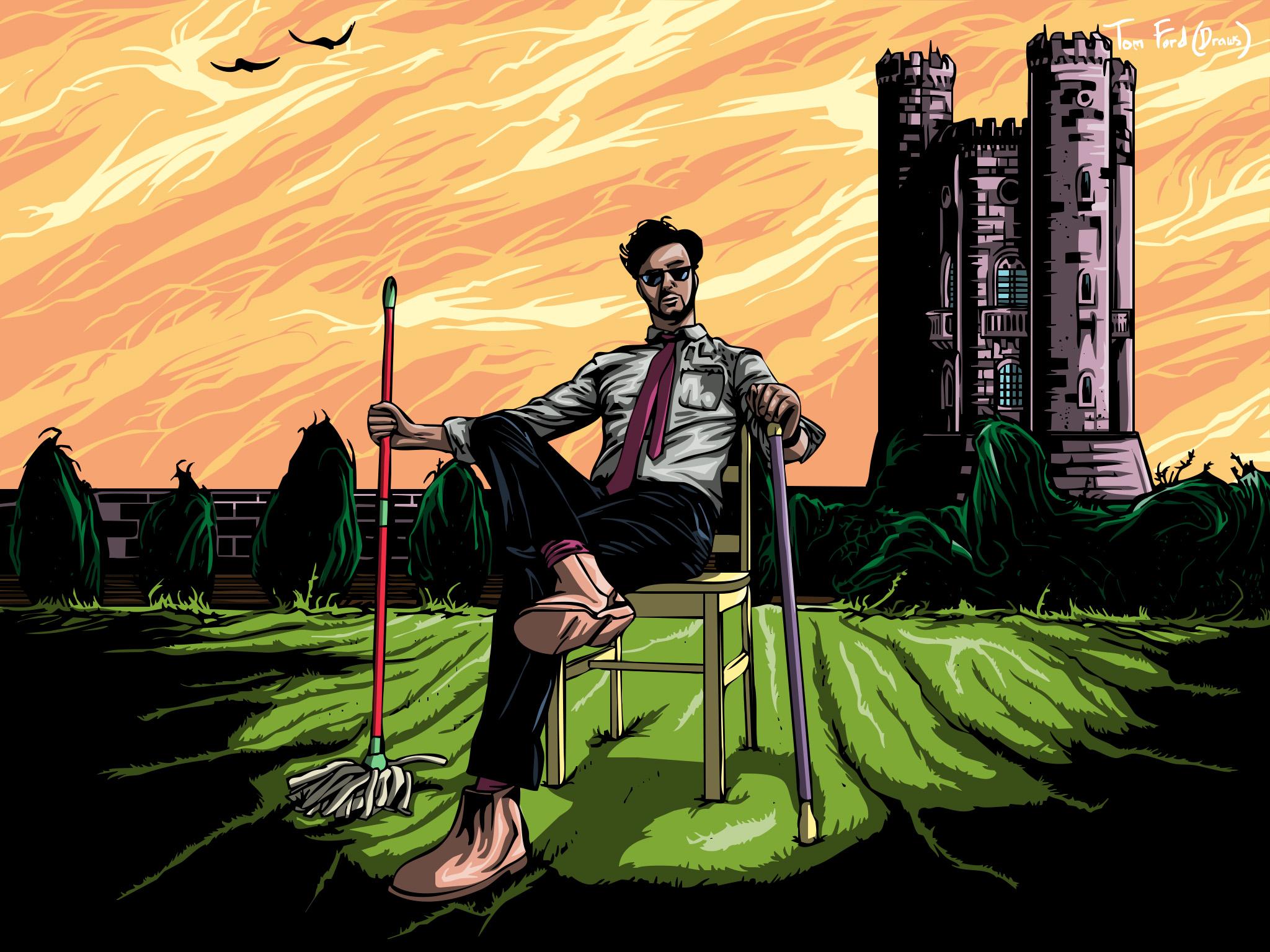Which class are you?
Continuing her series tackling socially unacceptable questions, Christine Manby asks whether Brits still relate to the traditional social scale


Are you upper, middle or lower? I’m sure you know exactly what I’m referring to.
Is there any subject more fascinating to the British than class? Is there any subject, not including Brexit or Heinz Beans versus Branston, more likely to start a fight amongst the British on social media?
Asking a Brit where they think they come on the social scale is on a par with asking how often they change their underwear, and yet at the same time people will fall over themselves to tell you. Encompassing as it does the twin lotteries of money and breeding and all the spurious moral judgments that can be assigned to both, the British are obsessed with class.
TV’s The Frost Report identified as much in its classic 1960s sketch on the subject, in which John Cleese, Ronnie Barker and Ronnie Corbett represented the three classic class types as we’ve known them since the 19th century. Cleese, tallest by a head and wearing a bowler hat, was upper-class. Ronnie Corbett, who looked half Cleese’s height on camera, was lower-class. Barker, in the middle, was middle-class. It’s clear that Barker is the real butt of the joke. As Cleese explains that he looks down on Barker and Corbett explains that he looks up to him, middle-class Barker looks simultaneously obsequious and snobbish. Ultimately, working-class hero Corbett gets all the best lines.
That sketch first aired in 1966, but as recently as 2005 it still made number 40 in Channel 4’s Britain’s 50 Greatest Comedy Sketches, testifying to the timeless appeal of its on-the-nose characterisation. However in 2013, a BBC survey suggested that the old three-class system was outdated, fitting just 39 per cent of the 160,000 people questioned.
The survey showed that people in the UK could actually be divided into seven distinct social classes, taking into account not just education, occupation and wealth, as in the old three-tier system, but also cultural and social capital (the latter being the number and status of the people we know). In addition to questions about income and savings, respondents were asked how often they enjoyed activities such as attending sporting events or the opera. They were also asked about the occupations of people they knew.
The new classes as defined by the BBC’s study ranged from the “precariat” at the bottom – those people with such low economic, social and cultural capital that their lives are literally precarious – to the “elite” at the top. They divided the middle class into two – the established middle class and the less socially connected “technical middle class”. Below them came the “new affluent workers” and the “emergent service workers”. The traditional working class had an average age of 66 and made up just 14 per cent of those surveyed. Meanwhile, the middle class was the biggest group, encompassing a full quarter of respondents, which is why it’s odd that I hardly appear to know any middle-class people at all.
Harry Potter author JK Rowling is reported to have said on the matter: “I think you could ask 10 English people the same question about class and get a very different answer.” I contend that Rowling is dead wrong about that: ask 10,000 English people on Facebook about class and you’ll get one of three answers, to wit:
“I’m working-class. We had dinner at lunchtime in our house and put the milk bottle straight on the table.”
“Class doesn’t matter... but I’m definitely working-class. We always called our dinner ‘tea’.”

And finally, “I’d say I’m lower-middle-class but my granddad was a miner / lived next door to someone who was a miner / once saw a documentary about one.”
Nobody ever cops to being upper-class. Possibly because it’s “non-U” to answer personal questions on Facebook and if you don’t know what “non-U” means, you’re definitely not upper-class. Likewise no one ever says they’re middle-class unless they follow it up with a caveat that suggests they’re just two generations away from an urchin who was sent up a chimney. What’s going on?
Is it simply unfashionable to be middle-class these days? Is it that to say you’re middle-class is to align yourself with the likes of Hyacinth Bucket of Keeping Up Appearances and no one wants to be Hyacinth Bucket? Professional research bears out the anecdotal evidence that fewer people count themselves as middle-class than ever. A 2016 survey by British Social Attitudes found that 60 per cent of us consider ourselves working-class. That figure includes 47 per cent of people employed in professional and managerial occupations.
Meanwhile, according to financial services group True Potential, some 69 per cent of young people believe they’re being held back in their careers by a “class ceiling”. That’s a big number.
Of course, class prejudice can cut both ways. While the Oxbridge admissions system is accused on a yearly basis of being biased against those from underprivileged backgrounds, there are those who insist that they are being discriminated against because they went to the wrong school – the wrong school in this case being a public school like Eton or Cheltenham Ladies’ College rather than a failing comprehensive. Pulp has a song that might help people feeling bad about that.
In Britain the class system might still more realistically be considered a caste system. In theory, class is mutable while caste is for life. There’s no social mobility within a caste system and these days there’s a vanishingly small amount of social mobility in the British class system too. Meghan Markle may have made it from actor to duchess in record time, but she’s American. If Harry’s mates had been able to place her accent, it might have been a different story.
While a small number of old Etonians may feel they’re being squeezed out of their traditional strongholds, the stark fact is, if you’re born rich, you’re more than likely to stay rich. At the other end of the spectrum, if you’re born poor, then that’s how you’re likely to remain.
In 1997, John Prescott declared: “We’re all middle-class now.” Just over two decades later, it seems many of us feel very differently. Inequality is squeezing the middle into oblivion. If The Frost Report remade its sketch today, there would be no part for Ronnie Barker and John Cleese would be standing much further away from Ronnie Corbett.
Christine Manby has written numerous novels including ‘The Worst Case Scenario Cookery Club’
Join our commenting forum
Join thought-provoking conversations, follow other Independent readers and see their replies
Comments